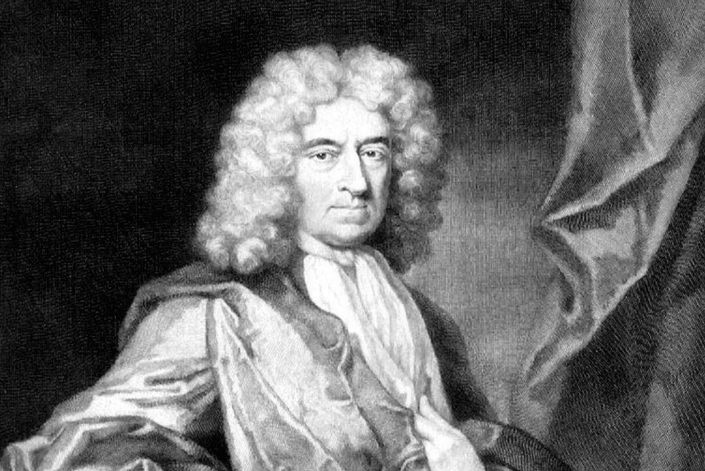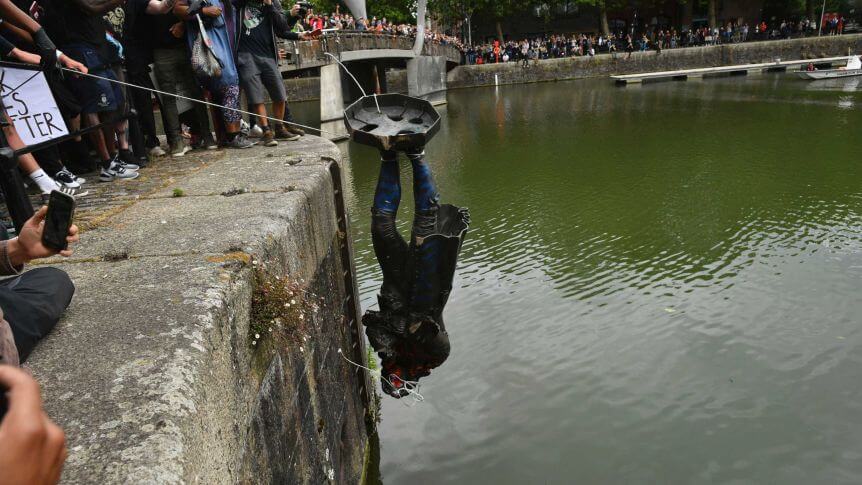Who was Edward Colston? The life, career and contemporary debates of the English statesman and slave trader Edward Colston, whose dark legacy is still the subject of debate today.
Edward Colston (1636-1721) was a British merchant and member of Parliament who made his fortune in the slave trade. He was heavily involved in the Royal African Company, which had a monopoly on the English slave trade, and was responsible for the transportation of tens of thousands of enslaved Africans to the Americas. Colston was also a philanthropist, and used some of his wealth to support charitable causes in Bristol, including the founding of almshouses, schools, and hospitals. However, his philanthropy was built on the profits of slavery, and in recent years his legacy has been re-examined and contested, particularly in relation to the public memorials and monuments that commemorate him in Bristol and other parts of the UK.
Early life
Edward Colston was born on November 2, 1636, in Bristol, England. He was the youngest of at least 14 children born to William Colston, a wealthy merchant, and his wife Sarah. Edward Colston’s father died when he was young, and he was raised by his mother and his older brother, Thomas.
In his early years, Colston was educated at the prestigious Colston’s School in Bristol, which had been founded by his family. After completing his education, he became an apprentice to the London-based merchant, Thomas Bowcher, where he learned the business of trading and commerce.
After completing his apprenticeship, Colston returned to Bristol in 1662, where he established himself as a successful merchant, trading in a variety of goods, including wine, cloth, and tobacco. He became involved in the slave trade in the 1680s and was a key figure in the Royal African Company, which had a monopoly on the English slave trade at the time.

Career
Edward Colston’s career was built on his success as a merchant and his involvement in the slave trade. He made a fortune from the trade of goods such as wine, cloth, and tobacco, and later became heavily involved in the Royal African Company, which had a monopoly on the English slave trade.
Through his involvement in the slave trade, Colston was responsible for the transportation of tens of thousands of enslaved Africans to the Americas. His ships were known for their high mortality rates, with estimates suggesting that around 20% of the enslaved people who were transported on Colston’s ships did not survive the journey.
Despite his involvement in the slave trade, Colston was a prominent figure in Bristol and was highly respected for his philanthropy. He donated large sums of money to charitable causes in the city, including the founding of almshouses, schools, and hospitals. His charitable work was often focused on helping the poor and disadvantaged, and he was a key figure in the development of the city’s social and cultural infrastructure.
Today, Colston’s legacy is the subject of ongoing debate and controversy. While his philanthropic work is still celebrated by some, his involvement in the slave trade has led to calls for his statues and memorials to be removed, and for his name to be removed from buildings and public spaces.
Death
Edward Colston died on October 11, 1721, at his home in Mortlake, Surrey, England, at the age of 84. He had retired from business some years earlier and had been living in seclusion in Mortlake, where he devoted his time to prayer and religious study.
After his death, Colston was buried in All Saints Church in Bristol, where he had been a prominent member of the congregation. His funeral was a major event in the city, and he was mourned by many who remembered him for his philanthropic work.
In the years that followed, Colston’s legacy continued to be celebrated in Bristol, with many buildings, schools, and streets named after him. However, as awareness grew about his involvement in the slave trade and the suffering it caused, there were increasing calls for his legacy to be re-evaluated. Today, his legacy remains the subject of debate and controversy, and his name continues to be a topic of discussion in discussions of public memory and commemoration.
Modern reappraisal
In recent years, Edward Colston’s legacy has been the subject of significant reappraisal and controversy, as his involvement in the slave trade and the suffering it caused have become more widely recognized and acknowledged. This has led to calls for his statues and memorials to be removed, and for his name to be removed from buildings and public spaces.

In Bristol, where Colston was a prominent figure, his statue was toppled by protesters in June 2020, and there have been ongoing debates about what should be done with the statue and other memorials to Colston in the city. In other parts of the UK, there have also been calls for Colston’s name to be removed from buildings and public spaces, and for a broader re-evaluation of the country’s historical links to slavery and colonialism.
While some have defended Colston’s philanthropic work and his role in the development of Bristol, others argue that his legacy is tainted by his involvement in the slave trade, and that his statues and memorials are inappropriate in a society that values diversity and equality. The ongoing debates about Colston’s legacy reflect wider discussions about how historical figures should be remembered and commemorated, and how we should address the legacies of slavery and colonialism in modern society.